China-Central Asia Chapter of 9th Teenager Maker Camp and Teacher Workshop Held in Urumqi, China
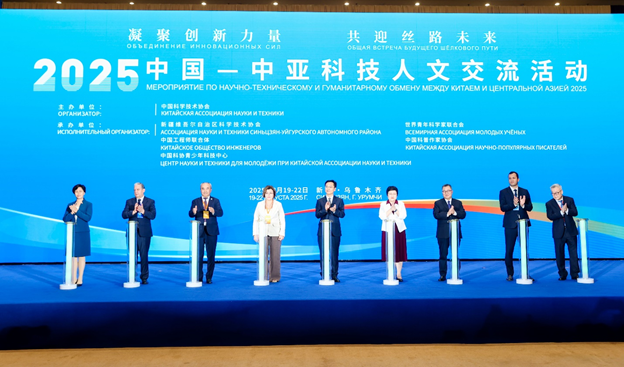
The Central Asia Chapter of the 9th Belt and Road Teenager Maker Camp and Teacher Workshop was successfully held from August 19–24, 2025 in Urumqi, the capital city of Xinjiang Autonomous Region, China. This Camp was part of the 2025 Annual Plan of the Belt and Road International Science Education Consortium (BRISEC).
The event was hosted by Xinjiang Association of Science and Technology (XAST) and organized by the Children and Youth Science Center (CYSC) of China Association for Science and Technology (CAST), with the support of ECO Science Foundation (ECOSF) and several local institutions.
The Camp was formally inaugurated by Mr. Deng Mingjiang, Chairman of XAST, in a modest yet impressive ceremony. High officials and leaders from CAST, CYSC, XAST, along with dignitaries from Kazakhstan, Kyrgyzstan, Tajikistan, Uzbekistan, and representatives of local organizations attended the opening.
ECOSF was represented by Dr. Ghulam Muhammad Memon, Executive Director, and Mr. Ghulam Abbas Rahar, Manager.
Around 50 teachers and students from China and ECO countries—including Azerbaijan, Kazakhstan, Kyrgyzstan, Pakistan, Tajikistan, and Uzbekistan—participated in the Camp. It is noteworthy that the participation of teams from ECO member countries was facilitated and coordinated by ECOSF.
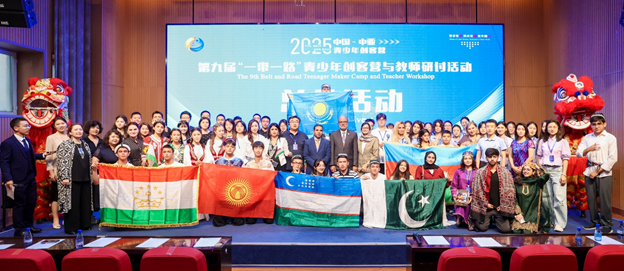
It is worth mentioning that over the past nine years, the Maker Camps have become a leading platform for science, technology, and cultural exchange, attracting nearly 70 million participants from more than 120 countries, regions, and international organizations. Through innovative practices and institutionalized exploration, the Camps have established themselves as a vital channel for advancing international cooperation in science, technology, and culture.
During the five-day Camp, the participants—guided by technology mentors —visited:
- Xinjiang Software Park
- Xinjiang Engineering College Aviation Industry College
- Xinjiang Geology and Mineral Museum
- Xinjiang Science and Technology Museum
They also engaged in hands-on courses such as:
- “Innovation and Exploration under the Digital Silk Road”
- “Walking Geology Classroom”
- “Bright Light – Making Solar Cars”
Through these experiences, students explored emerging technologies including low-altitude economy, drone flight, and smart agriculture. To emphasize the integration of science with culture, the Camp also featured Peking Opera face painting and pottery making, offering participants a unique opportunity to experience traditional Chinese art and culture.
Dr. Ghulam Muhammad Memon, Executive Director of ECOSF, actively participated in various activities of the Camp. He underlined that the event served as a valuable learning platform for both students and teachers, enabling them to benefit from the diverse experiences of different countries—particularly China’s remarkable progress in science and technology.
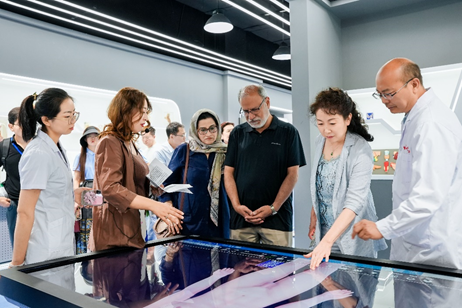
During visits to leading research facilities and laboratories, Dr. Memon expressed great appreciation for China’s state-of-the-art infrastructure. He remarked that over the next two decades, artificial intelligence, data science, and space technology will shape the course of global development, and China is already at the forefront of these fields.
He further emphasized that building a China–Central Asia community with a shared future requires sustained commitment to scientific collaboration and cultural exchanges among the youth.
The Maker Camps, with their “small but beautiful” format, serve as a powerful mechanism for:
- Cultivating young scientific and technological talent
- Promoting innovative solutions
- Strengthening regional trust and cooperation under the Belt and Road Initiative
By planting the seeds of science, technology, and humanity in the hearts of young people, these Camps foster friendships beyond geography and economics and create new opportunities for shared growth and prosperity.
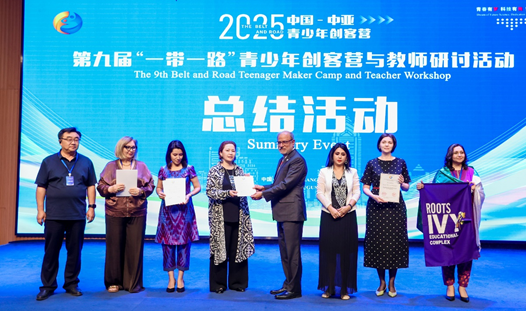
On August 24, 2025, the Camp was concluded with a closing ceremony featuring award of certificates of participation to Team leaders, and presentation of vibrant cultural performances by each delegation, showcasing the rich and diverse traditions of their respective countries through music, dance and traditional attire.
Following are some glimpses of the Camp:
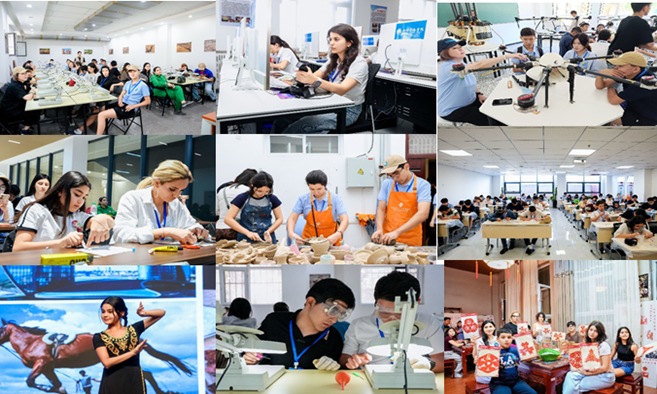
The event ended on a high note, strengthening bonds of friendship, cultural understanding, and cooperation between China and Central Asian nations, while inspiring youth to embrace science, technology, and innovation for a brighter future.
